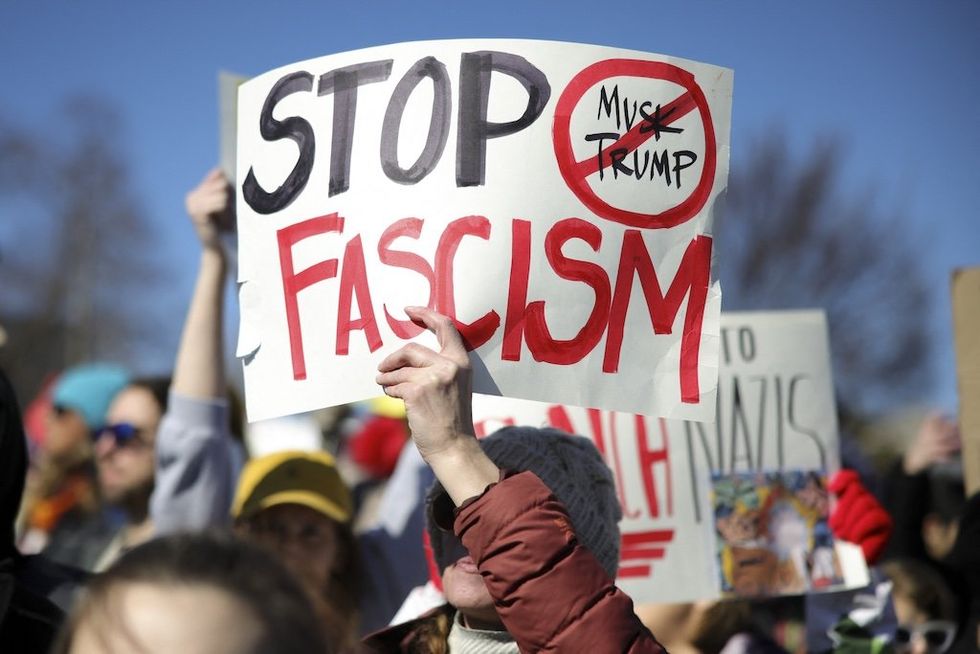
Someone just sent me a Passover greeting that traced the arc of tyranny from the ancient pharaohs to our current “dictator” in the White House. The message left little to the imagination: Donald Trump, apparently, is the modern-day pharaoh.
The sender works, unsurprisingly, in our state bureaucracy in Harrisburg. She was happy as a lark during Joe Biden’s “compassionate” presidency, but now seethes at his swamp-draining successor.
This isn’t a debate over rights. It’s a collision between incompatible worldviews.
In the past, I might have written her back. I might have reminded her who actually weaponized the federal government against political opponents. I might have pointed to the sweeping executive orders, the censorship collusion, and the criminalization of dissent that flourished under the true despotism of President Joe.
Unlike Biden and his handlers, Trump has made his intentions clear — and he’s doing what he promised. Transparency used to matter in politics. Apparently not any more.
I might also have noted the waste, incompetence, and embedded corruption in the federal bureaucracy, including the office that cuts her checks. The Department of Government Efficiency was not a stunt. It was a necessary start. And its housecleaning is long overdue.
Different ideological universes
I’ve come to realize that trying to debate this acquaintance would be pointless. We’d only talk past each other. Words don’t mean the same thing to both of us. It’s not that I believe in “freedom” or “constitutional government” and she doesn’t. It’s that the definitions we assign to those words are so radically different that even if we used the same language, we wouldn’t truly agree.
This insight came into focus while reading A. James Gregor’s “The Ideology of Fascism,” a book that sheds valuable light on political semantics. Gregor notes that fascists and communists genuinely believed in their own concepts of “democracy” and “freedom.” They weren’t just twisting the language — they inhabited entirely different ideological universes. And so, certain political divisions can’t be bridged. The terms are familiar, but the meanings diverge.
To the woke left, for instance, it seems entirely reasonable to remove children from parents who “misgender” them or who insist on using biologically accurate pronouns. In their framework, punishing such offenses against identity isn’t oppressive — it’s the fulfillment of authentic freedom. The law, they argue, is merely shielding the vulnerable from unnecessary psychological harm.
This isn’t a debate over rights. It’s a collision between incompatible worldviews.
A new left lexicon
It’s apparently ignorant — or worse — to define “fascism” narrowly, as something confined to the interwar European dictatorships. According to today’s progressive orthodoxy, fascism now flourishes wherever LGBTQ guidelines aren’t strictly followed or wherever anyone dares to advocate for a less “compassionate” form of government — say, one that distinguishes between citizens and undocumented migrants.
The logic, such as it is, goes something like this: Germany once drew sharp legal lines, and look where that led — tyranny and genocide. Ergo, any policy that establishes firm national boundaries or citizenship norms must be a step toward fascism.
Meanwhile, “oligarch” no longer refers to the mega-wealthy class in general. As I’ve gathered from watching MSNBC, an oligarch is now anyone who donates to MAGA Republicans or refuses to get rid of a Tesla after learning that Elon Musk is a “fascist.”
Likewise, the label “white nationalist” has been repurposed to apply to any MAGA-aligned Republican who fails to support the Democrats’ latest campaign against “white nationalism.” Trump’s support for voter ID laws or efforts to deport criminal illegal aliens? Those too, we’re told, reek of white nationalism — never mind that many of the ICE agents enforcing those policies have dark skin. That detail is irrelevant because it doesn’t fit the narrative.
What many on my side view as a sprawling, wasteful, and unconstitutional bureaucracy, our political opponents treat as the very embodiment of constitutional government. The Constitution they revere is not the one written in Philadelphia. It is a “living document” — one that demands a constantly expanding class of civil servants to fulfill the goals of “democracy,” which now include identity politics, lifestyle diversity, and environmental dogma.
Trump, in their view, is a modern pharaoh not because he consolidates power but because he makes life harder for the benevolent bureaucracy. He obstructs the compassionate machinery of the state. Worse, he sows “chaos” — unlike the Democrats, who have dutifully welcomed millions of illegal migrants to enrich America with fresh waves of sanctioned diversity.
Liberty’s language hijacked
None of this is to say that millions don’t cynically exploit these twisted definitions of political virtue. Nor am I suggesting a moral relativism. I know where I stand. But it’s clear that large numbers of voters have swallowed these ideological rebrandings whole. And when basic political terms no longer mean the same thing to both sides, meaningful debate becomes nearly impossible.
Western Europe now offers a sobering example. Countries across the continent have begun curtailing freedom of expression — not in spite of democracy but in its name. To those driving this trend in what we still, somewhat naively, call the “free world,” there is no contradiction between repression and the preservation of liberty.
Even European governments that our own vice president has scolded for their illiberal tendencies insist they are safeguarding democracy and freedom. Against what? Against such “reactionary” threats as national sovereignty, religious conviction, and traditional gender norms.
Even worse, a growing number of voters in both Europe and the United States agree. The language of liberty has been hijacked to justify its opposite. And for now, the hijackers have no shortage of passengers willing to go along for the ride.














